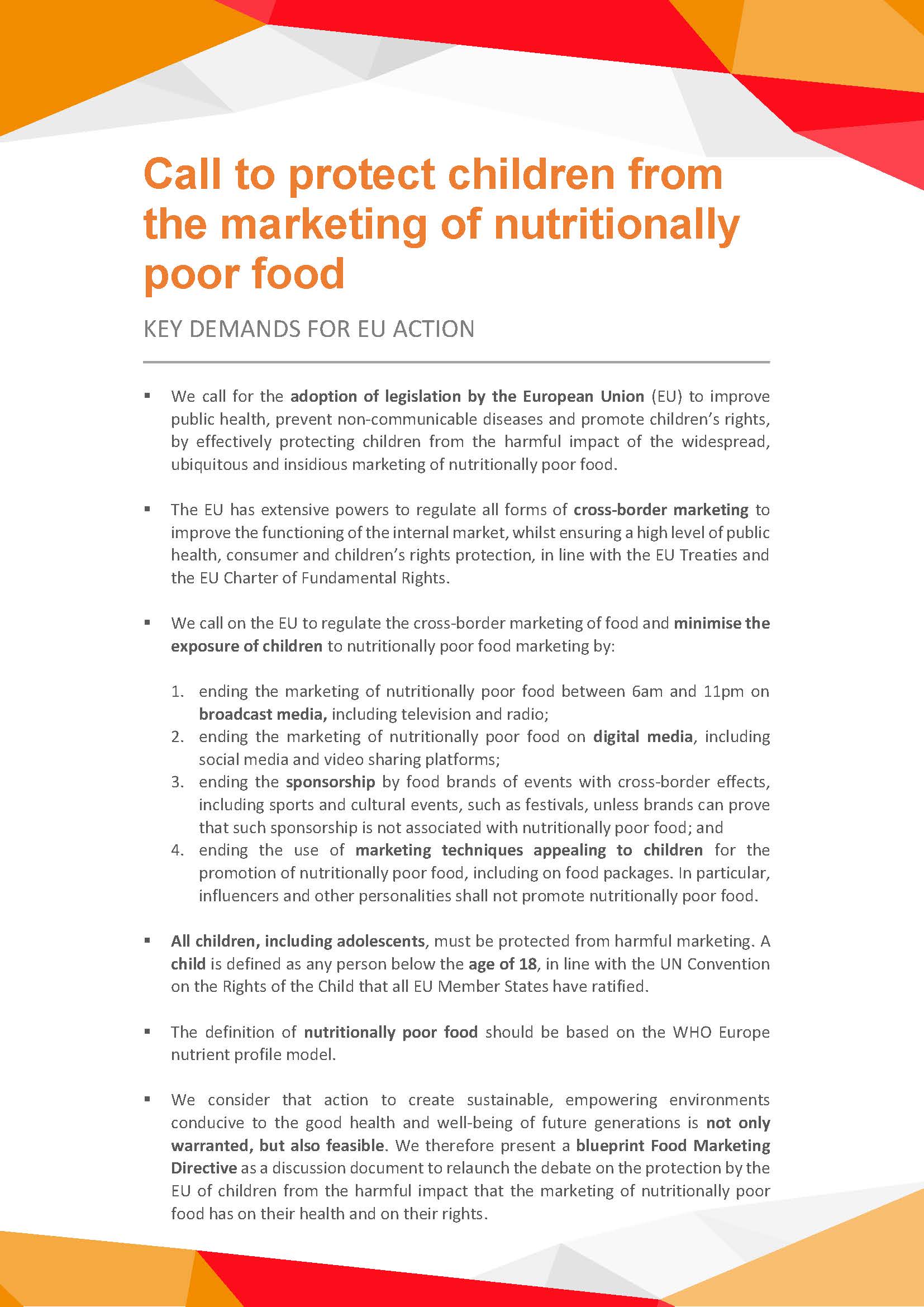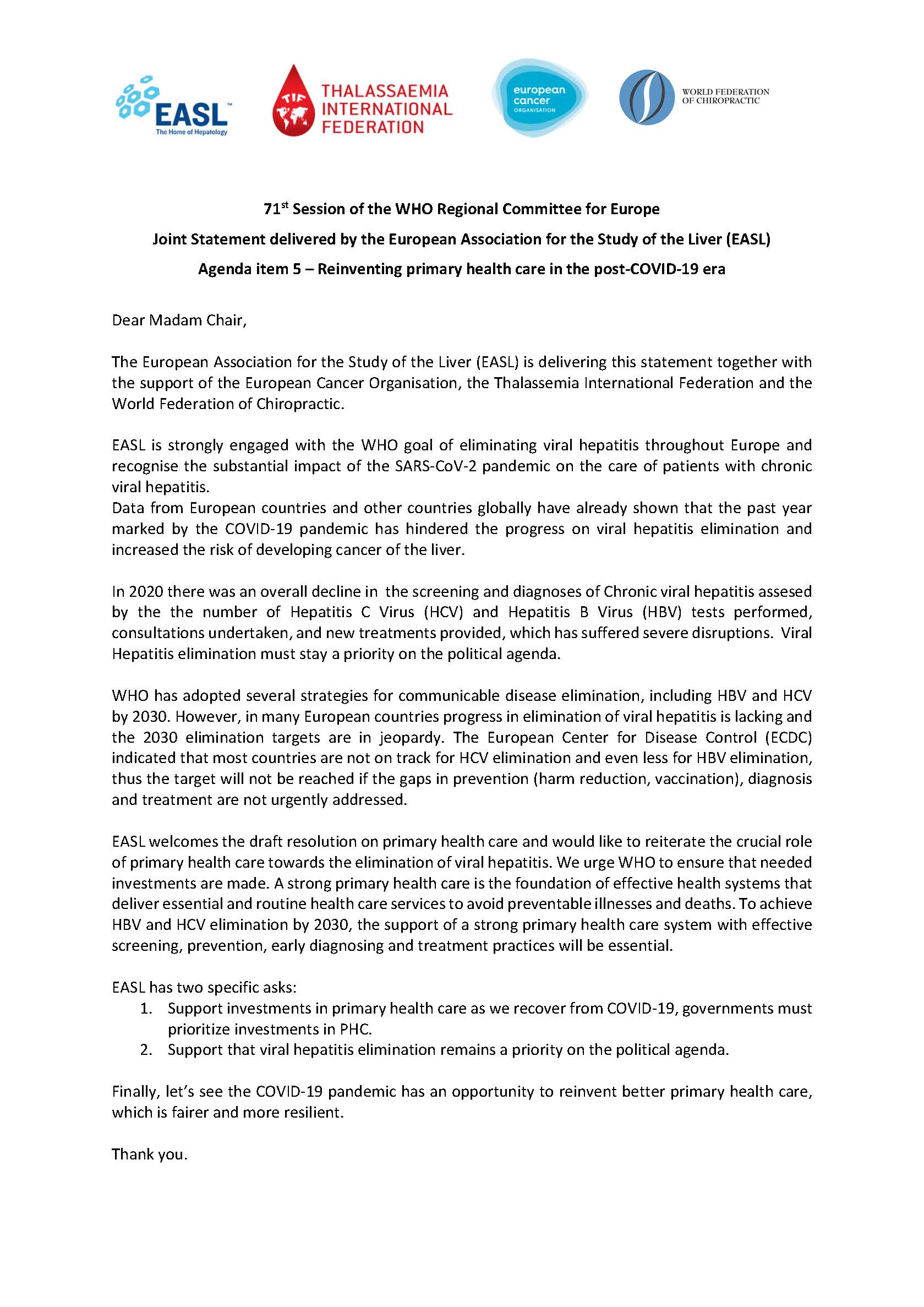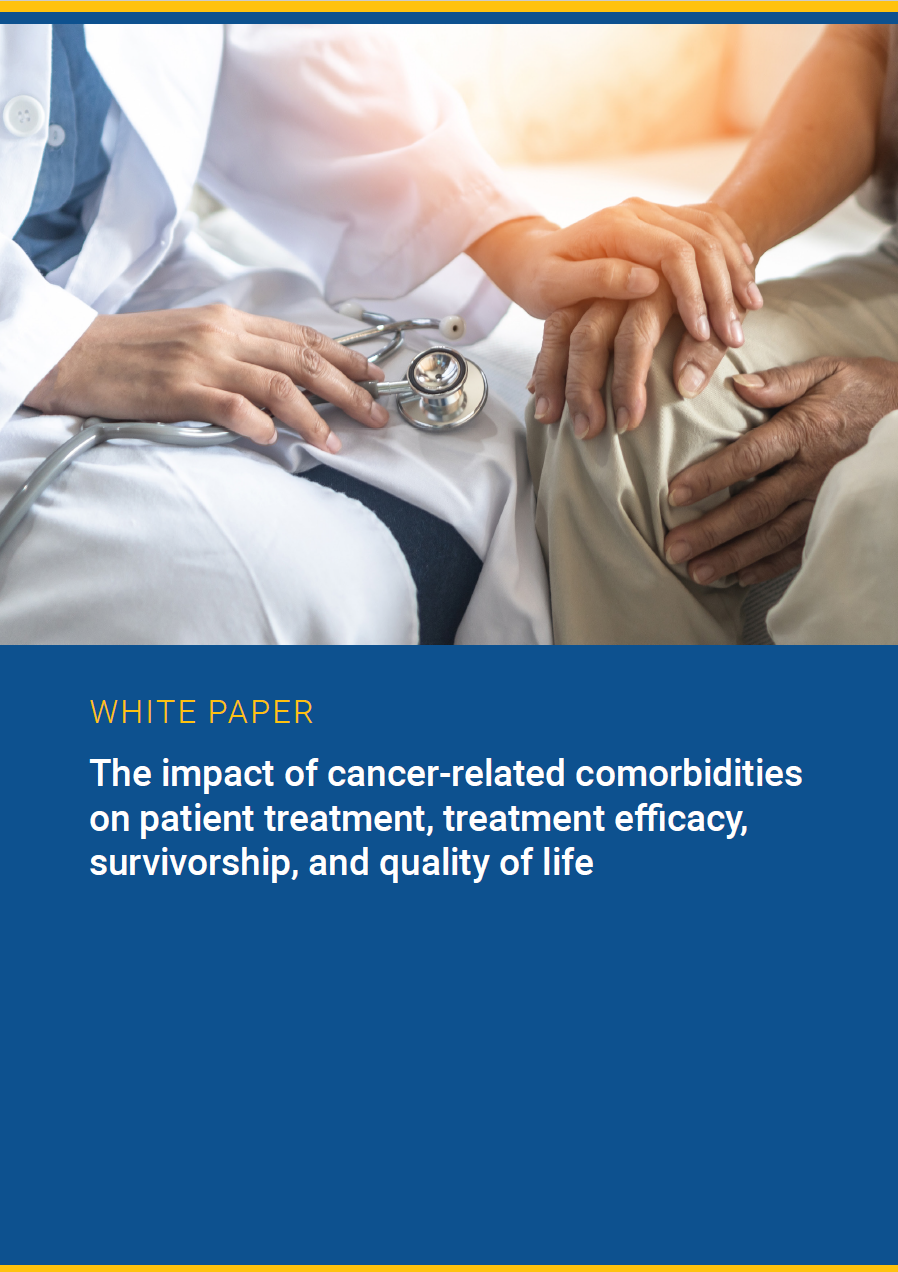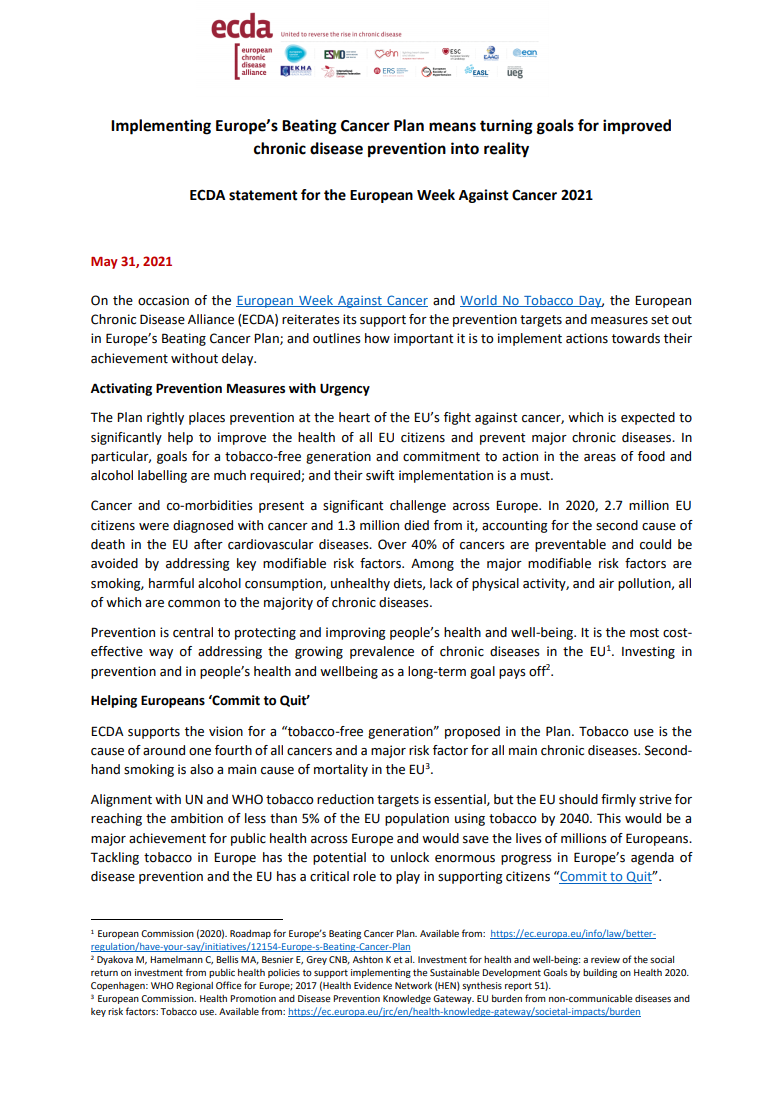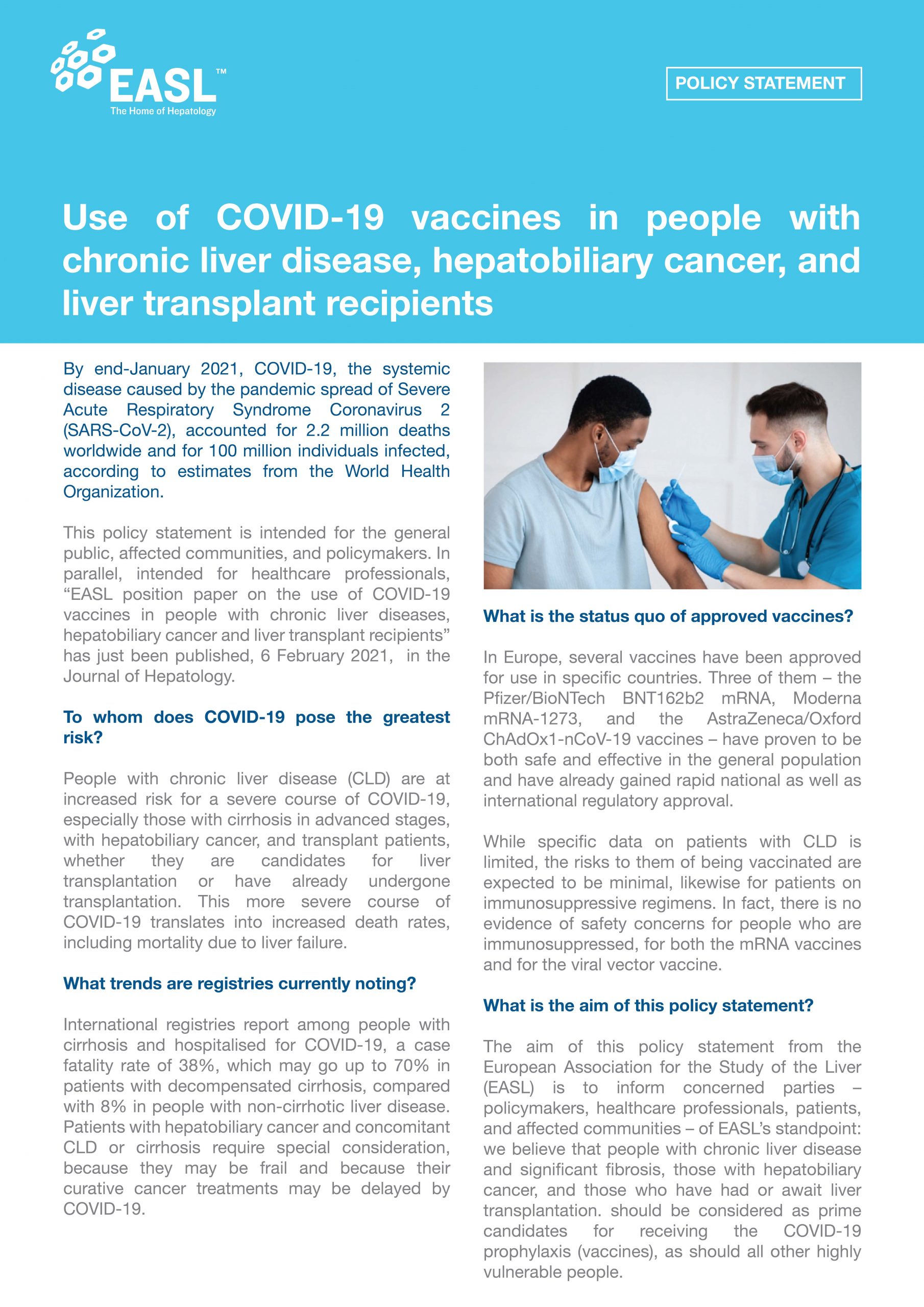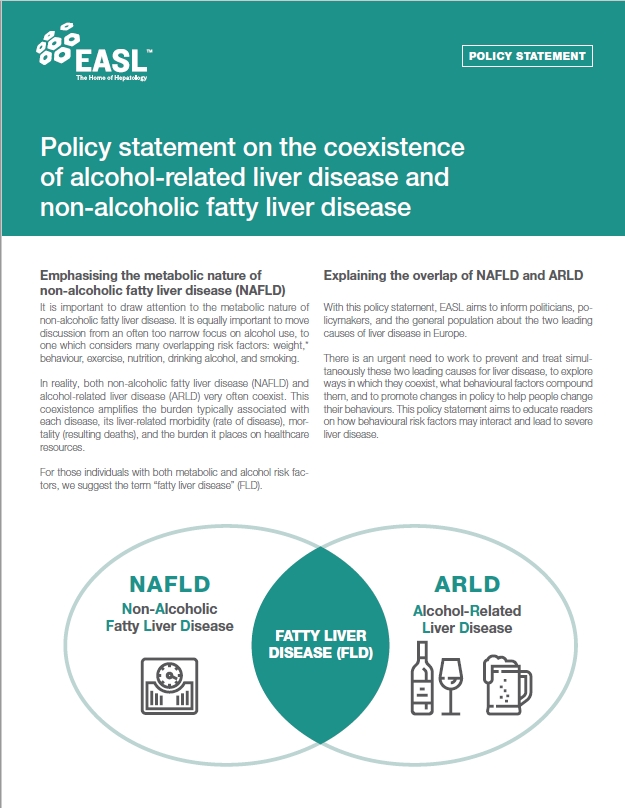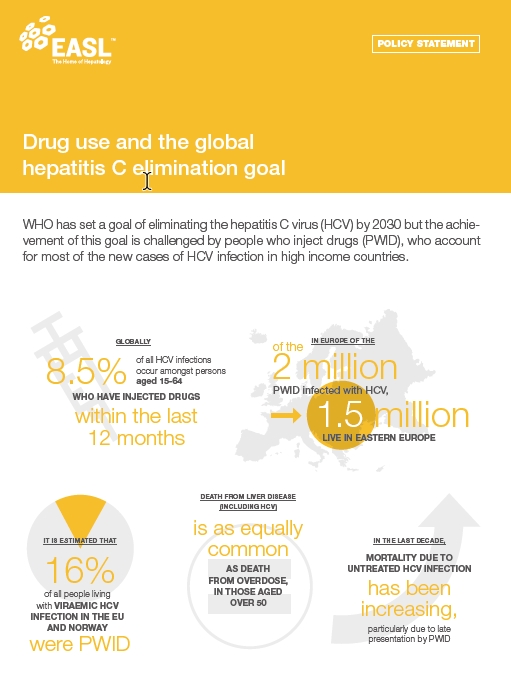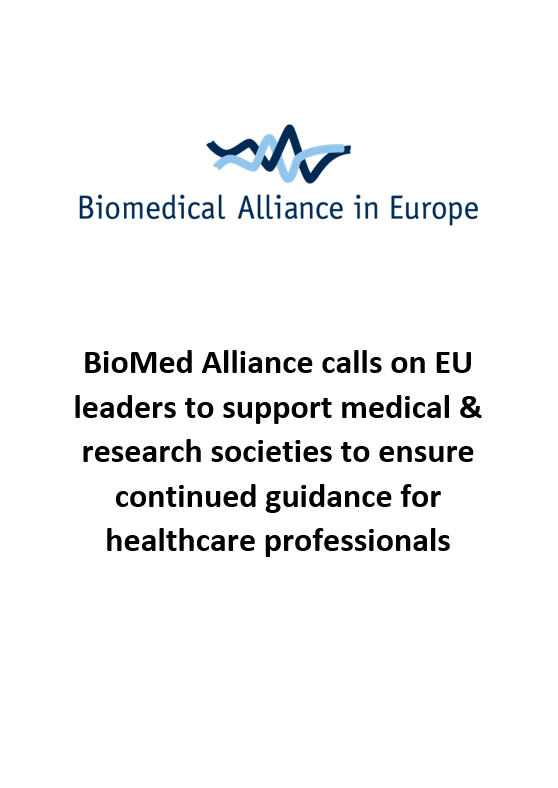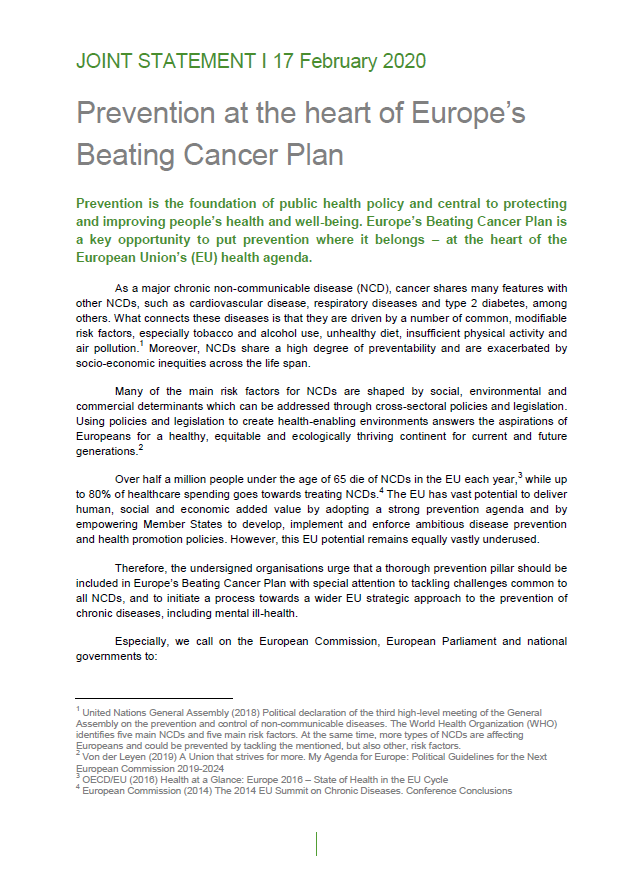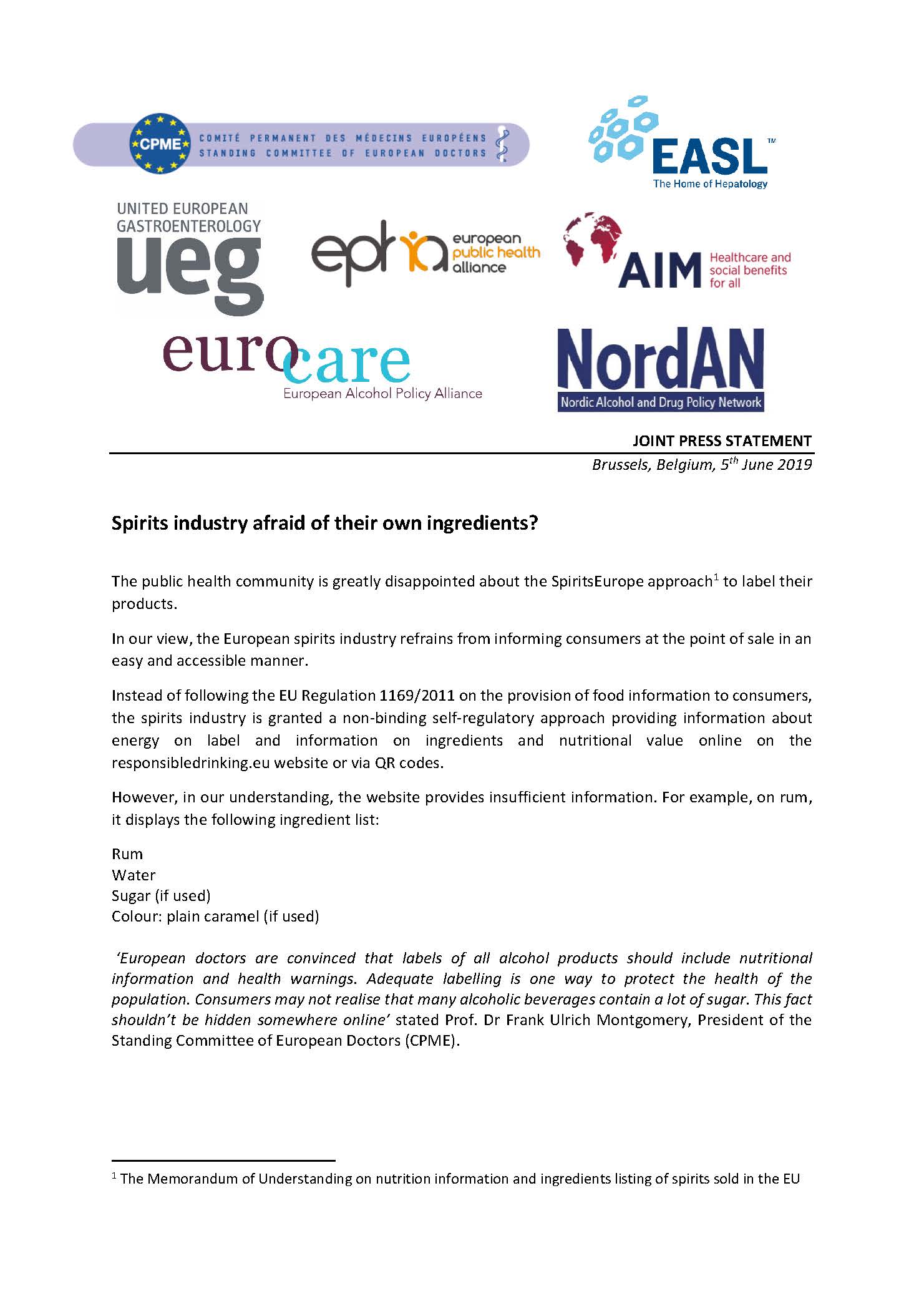EASL has published several reports on liver disease in Europe and is commissioning work on future publications.
We call for the adoption of legislation by the European Union (EU) to improve public health, prevent non-communicable diseases and promote children’s rights, by effectively protecting children from the harmful impact of the widespread, ubiquitous and insidious marketing of nutritionally poor food.
Read MoreEASL delivered a statement at the 71st Session of the WHO Regional Committee for Europe on 14th September 2021 under agenda item Reinventing primary health care in the post COVID-19 era. EASL welcomed WHO’s draft resolution on primary health care and reiterated its crucial role towards the elimination of viral hepatitis.
Read MoreEASL contributed to the White paper drawing attention to cancer-related complications and comorbidities related to alcohol consumption infectious diseases. Download the summary version. Download the full version.
Read MoreOn the occasion of the European Week Against Cancer and World No Tobacco Day, the European Chronic Disease Alliance (ECDA) reiterates its support for the prevention targets and measures set out in Europe’s Beating Cancer Plan; and outlines how important it is to implement actions towards their achievement without delay. Download the full version.
Read MoreThis policy statement is intended for the general public, affected communities, and policymakers. In parallel, intended for healthcare professionals, an article titled “EASL position paper on the use of COVID-19 vaccines in people with chronic liver diseases, hepatobiliary cancer and liver transplant recipients” was published, 6 February 2021, in the Journal of Hepatology. Download the…
Read MoreAlcohol-related Liver Disease (ARLD) is the major cause of liver disease in Europe and, since it depends mostly on harmful alcohol consumption, it is a highly preventable disease.
Full version of Policy Statement
WHO has set a goal of eliminating the hepatitis C virus (HCV) by 2030 but the achievement of this goal is challenged by people who inject drugs (PWID), who account for most of the new cases of HCV infection in high-income countries.
In order to achieve the 2030 WHO viral hepatitis elimination goals, EASL recommends: that all barriers to the uptake of healthcare services by PWID be removed by changing policies and discrimination that hinder access. This includes the decriminalisation of minor, non-violent drug offences and the adoption of an approach based on public health promotion, respect for human rights and evidence.
Full version of Policy Statement


